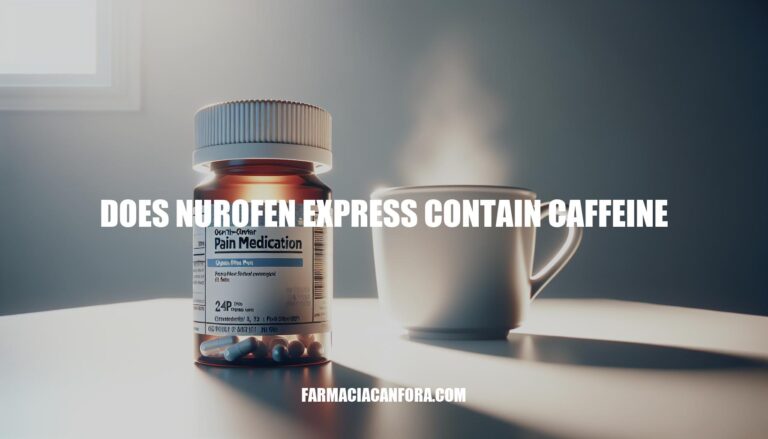


Nurofen Express is a fast-acting pain relief medication containing ibuprofen, commonly used to treat headaches, backaches, and other minor aches and pains. Some people might be concerned about whether it contains caffeine, as caffeine can affect sleep and cause jitteriness. However, Nurofen Express does not contain caffeine.
Nurofen Express contains Ibuprofen as its active ingredient. It does not include caffeine.
Nurofen Express primarily contains Ibuprofen as its active ingredient. Here’s how it works:
Caffeine is not present in Nurofen Express. The absence of caffeine means it relies solely on ibuprofen for its pain-relieving and anti-inflammatory effects.
Nurofen Express Liquid Capsules 200mg:
Nurofen Migraine Pain:
Each product is tailored for specific types of pain and symptoms, with Nurofen Cold and Flu being the only one containing caffeine to enhance pain relief and provide alertness.
Common consumer concerns regarding caffeine in medications include:
Nurofen Express addresses these concerns by not including caffeine in its formulation. This makes it a suitable option for those who are sensitive to caffeine or wish to avoid its potential side effects. Nurofen Express focuses on providing fast and effective pain relief through its active ingredient, ibuprofen, without the added stimulant effects of caffeine.
Nurofen Express does not contain caffeine, making it a suitable option for those who are sensitive to caffeine or wish to avoid its potential side effects. The medication relies solely on ibuprofen as its active ingredient, providing fast and effective pain relief without the added stimulant effects of caffeine.